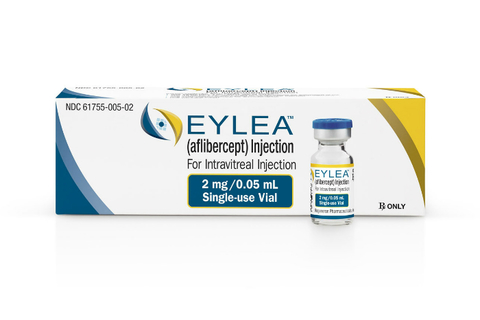Source: Thailand Medical News Jun 02, 2019 6 years, 8 months, 2 days, 17 hours, 33 minutes ago
Diabetic retinopathy is the leading cause of blindness in adults across the world, but the most challenging aspect of the disease is that it often goes undetected until too much damage has been done and the person affected is already losing their vision. Most diabetics have few treatment options as the severity of the condition and vision loss worsens.
Regeneron Pharmaceuticals Drug Eyela , has just been approved by the Food and Drug Administration (FDA) to treat all stages of diabetic retinopathy.

Eylea is a “VEGF (vascular endothelial growth factor)” inhibitor, which means it works by stopping the growth of potentially abnormal blood vessels. It reduces swelling and reduces the leakage and bleeding that’s responsible for increasing vision loss.
Initially created to treat diabetic macular edema, Eylea’s recent FDA approval will give diabetics struggling with the threat of vision loss a greater chance of preserving their sight.
During a recent clinical trial, Eylea reduced a patient’s risk of early signs of retinopathy from progressing into “proliferative diabetic eye disease” by 85 to 88 percent.
Eylea is the only drug that has been approved for the early treatment of diabetic retinopathy to attempt to prevent the progression of serious retinal complications While there are treatments for retinopathy that work similarly, experts say Eylea presents the best opportunity for a patient whose retinopathy is detected early to preserve as much vision and overall eye health as possible.
A person with diabetes can develop retinopathy even with well-managed blood sugar levels. Most cases of retinopathy are the result of chronically high blood sugar levels that gradually damage blood vessels in the retina of a person’s eye.
As the excessive amount of glucose in a person’s bloodstream damages and destroys those blood vessels, they will eventually begin to bleed or leak and impair vision. In addition to diligent diabetes management, one of the only ways to prevent severe vision loss from retinopathy is by stopping it early in its tracks, before symptoms develop, through annual eye exams with an optometrist.
Diabetics with retinopathy usually exhibit these signs and symptoms:
-seemingly sudden or double vision
-difficulty reading text close up
-pain or pressure in the eyes
-a dark ring or aura around lights or glowing signs
-dark spots in your vision
-images of flashing lights in your vision
DME is characterized by the swelling of the macula in a person’s eye, which also severely threatens vision. Following DME, people can be diagnosed with proliferative diabetic retinopathy (PDR), which is characterized by significant vision loss.
There are essentially three different types of treatment for diabetic retinopathy.These include laser therapy or injections of two different classes of drugs,steroids or anti-VEGFs like Eylea.
Avastin and Lucentis are the most commonly known treatments for diabetic retinopathy and are delivered via injection. However, Lucentis is o
nly approved and intended to treat the later stages of retinopathy and DME.
Guideline For Preservation of Eyesight For Diabetics
Diabetics should strive for an HbA1c at or below 7 percent for the best possible prevention of diabetes-related eye complications. Research has also shown that, even for adolescents with type 1 diabetes, an HbA1C below 7.5 percent significantly reduces the risk of retinopathy.
While taking vitamins A, E, C, and lutein can help improve eye health, nothing can compensate for persistently high blood sugar levels.
Diabetics should have their eyes examined every year. It is reported that early detection through annual eye exams can reduce your risk of vision loss by 95 percent.
